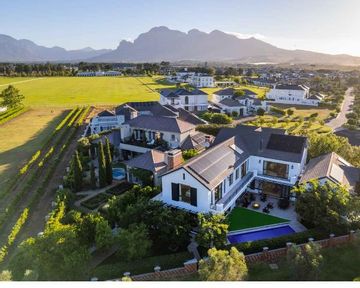Property market buoyed by strengthening house prices across all provinces
The positive impact of lower interest rates is still being felt around the country, as house price growth continues to accelerate in all provinces, with Mpumalanga, North West, and the Eastern Cape standing out as the top performers.
“After a year of record-low interest rates, buyers continue to make the most of the favourable lending environment. Initially, BetterBond experienced a significant uptick in first-home buyers buoyed by the improved affordability. But what we are observing is that buyers across all price bands are seeing the value of buying a home now while the prime lending rate is at the lowest it has been in 55 years,” says Carl Coetzee, CEO of BetterBond.
The top performing province currently, according to Lightstone data (ending May 2021), is Mpumalanga with a house price growth of 8.1%, followed closely by the North West. In the first quarter of 2020, house price growth in the North West was at 0.7%. By February this year, it was at a substantial 8%. Similarly, the Eastern Cape has shown phenomenal price growth of 7.4%, and Nelson Mandela Bay was the top performing metro at the end of February, with house price inflation of 8% according to Lightstone (latest available data). “Remote working has affected buying patterns, with many homeowners looking for larger properties in areas that will offer a better quality of life. These properties are often not in the larger cities, which accounts for the strong price growth across provinces,” says Coetzee.
House prices are well up from pre-pandemic levels, adds Coetzee. “Lightstone’s data for May shows that house price inflation has improved significantly for all provinces, except the Western Cape, when compared with the first quarter of 2020.” The Western Cape’s price inflation, at 4.1%, is still below the 4.4% it was in January last year, and considerably less than the 9.7% it was in 2017. “However, house prices in the Western Cape have traditionally been substantially higher than the rest of the country, and this dip in inflation reflects the necessary price correction that was already underway before the pandemic,” says Coetzee. There have also been fewer overseas buyers because of travel restrictions.
However, the percentage of bond applications in the Western Cape for properties of more than R3 million has increased from just over 5% in June 2020, to almost 11% for the year to date, says Coetzee. Similarly, the percentage of bond applications for properties priced at more than R3 million in Johannesburg North West is at almost 8% for the year to date, up from the 5% it was in June last year, as Deeds Offices reopened after lockdown. “This shows that there is movement at the upper end of the market, and that the impact of the lower interest rates is now being felt across all price bands.”
BetterBond’s application intake for June reflects that average purchase prices have increased for the 12 months ending in June, in all provinces. The average purchase price in the Northern Cape has increased by 18%, while average prices in the Eastern Cape are up 12% for this period.” The average purchase price in KwaZulu-Natal was up by 9% over a 12-month period, ending in June. Similarly, for the same period, the average house purchase price in Johannesburg North West increased by 8%, and by 10% in Johannesburg South East. This reflects Lightstone’s observation that house price inflation in Gauteng has almost doubled in the past five years. “Gauteng may not be the top provincial performer in terms of house price growth, but there are signs that it is starting to gain momentum. With a house price inflation of 4.4%, it has surpassed the Western Cape which is now showing the slowest price growth, according to Lightstone’s data for June,” says Coetzee.
Lightstone data for the major municipalities in Gauteng reveals similar trends. House prices in the City of Johannesburg increased by 3.6% in February this year, compared with a price growth of just 2% in 2017. The City of Tshwane has enjoyed a house price growth of 4.3%, according to the latest data ending February 2021, compared with the 2.5% it was five years ago. Ekurhuleni has shown the biggest surge with inflation of 5.9% in February.
“Contrary to expectations that house prices would spiral downwards because of the pandemic, we have seen an acceleration of price growth throughout the country. This is undoubtedly a response to the South African Reserve Bank’s decision to hold the prime lending rate steady at 7% for several months,” says Coetzee. “Economists predict that the repo rate is likely to hold steady for the rest of the year, giving the residential property market ample time to consolidate the growth we have seen in recent months,” he concludes.
Need a home loan?
We can help you get ready to buy your dream home by getting prequalified and applying for a home loan

